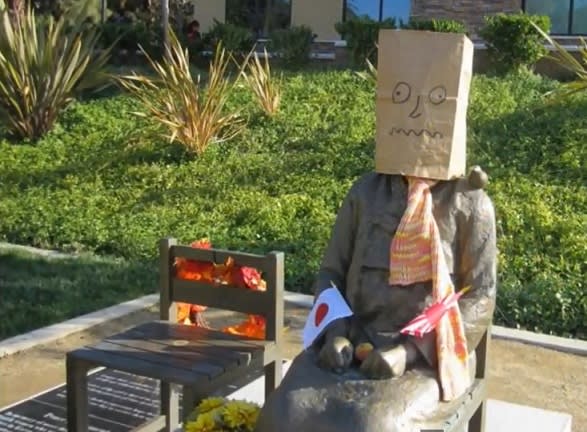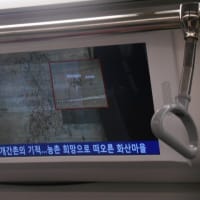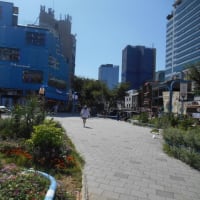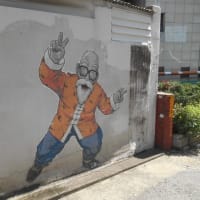
http://www.seisaku-center.net/sites/default/files/uploaded/The%20Comfort%20Women%20Issue-02.pdf
It is a fact that a large number of Korean women along with Japanese
women suffered greatly as a consequence of becoming comfort women
during the war era, yet there are also many common false allegations
about this issue. This essay has taken advantage of the objectivity enabled
by twenty-two years of substantive research and debate to
distinguish the facts from the falsehoods and further international understanding
of the issue.
1. The Allegation That Comfort Women Were Forcibly Recruited
By Government Authorities Is Not True.
There were no instances in which Korean women were forcibly recruited
by government authorities to become comfort women.
Throughout the 1980’s, the theory that government authorities engaged
in the forced abduction of comfort women was prevalent in academia
and the mass media in Japan as well as in South Korea. However, since
1992 this has been a diplomatic issue, prompting bona fide research into
the facts and a widespread debate. As a consequence of the research, the
dominant opinion in Japan as well as among some segments of South
Korean academia has become the realization that “there are no instances
where Korean women were forced to become comfort women by public officials.”
The grounds proffered in support of the false allegations for years relied
on the “testimony” by a person named Seiji Yoshida, who said, “I conducted
the forceful recruitment of comfort women like a slave hunt on
South Korea’s Jeju Island based on orders from the Army to recruit Volunteer
Corps members.” However, as the investigation proceeded, it
was revealed that there was absolutely no evidence or other testimony to
support his claims.
2. The International Community’s Erroneous Recognition Has Not
Yet Been Expunged.
The international community has not taken note of the research and debate
on this issue, including the conclusion that “there were no instances
of forced recruitment of Korean women as comfort women by government
authorities.” At the same time the clearly discredited allegation
that “government authorities forcefully abducted comfort women” is
still widely believed in the international community, and thus the issue
has become distorted.
Unfortunately, the misunderstanding in the international community
was heightened by the Coomaraswamy Report, submitted to the United
Nations Human Rights Commission in 1996. As evidence, the report
relied upon the testimony of Seiji Yoshida, which had already been
proven to be false. Subsequently, resolutions seeking to place responsibility
on the Japanese government for the comfort women issue were
adopted by the United States Congress, the European Parliament and
others, all of which relied on the flawed Coomaraswamy Report as their
basis.
3. The “Kono Statement” Expanded International Misunderstanding.
The expression of apology to former comfort women in the 1993 statement
of Chief Cabinet Minister Yohei Kono, followed by declarations of
the same meaning by successive Japanese Prime Ministers, was an acknowledgment
of moral responsibility based on current values.
Even now, there are many observers who wrongly assume that the Japanese
government acknowledged the forceful recruitment of comfort
women by government authorities in the statement. The section of the
Kono Statement that most strongly invites this misinterpretation is the
clause, “at times, administrative/military personnel directly took part in
the recruitments.” This clause exclusively refers to a specific war crimes
case in Indonesia where some Japanese Army units forced female Dutch
prisoners of war to work in a brothel.
In contrast, the part of the statement that refers to Japan’s moral responsibility
for infringing upon women’s dignity applies to all women. It has
been and continues to be the unchanging position of successive Japanese
governments, including the current 2nd Abe Administration.
4. Post-War Reparations Between Japan And South Korea Are Fully Resolved.
Since its independence and establishment as the Republic of Korea, no
South Korean government has ever demanded reparations for comfort
women in its diplomatic negotiations with Japan. The 1965 Accords negotiated
by the two countries state that the post-war process between
Japan and South Korea is a matter “completely and finally” resolved. As
a consequence, Japan provided South Korea with compensation in the
form of a grant of 300 million U.S. dollars, together with loan assistance
in the amount of 200 million U.S. dollars. The 500 million U.S. dollar
fund provided by Japan contributed to 20% of South Korea’s economic
growth over the period 1966 and 1975.
In 1995, the Asian Women’s Fund was created, with management and
administrative expenses paid by the Japanese government. It raised 700
million Japanese yen from the Japanese public (equivalent to 500 million
U.S. dollars), which was offered to former comfort women. Of the
237 former comfort women registered with the South Korean government,
61 accepted and received reparations from the Fund together with
letters of consolation and apology from successive Japanese Prime Ministers.




















※コメント投稿者のブログIDはブログ作成者のみに通知されます